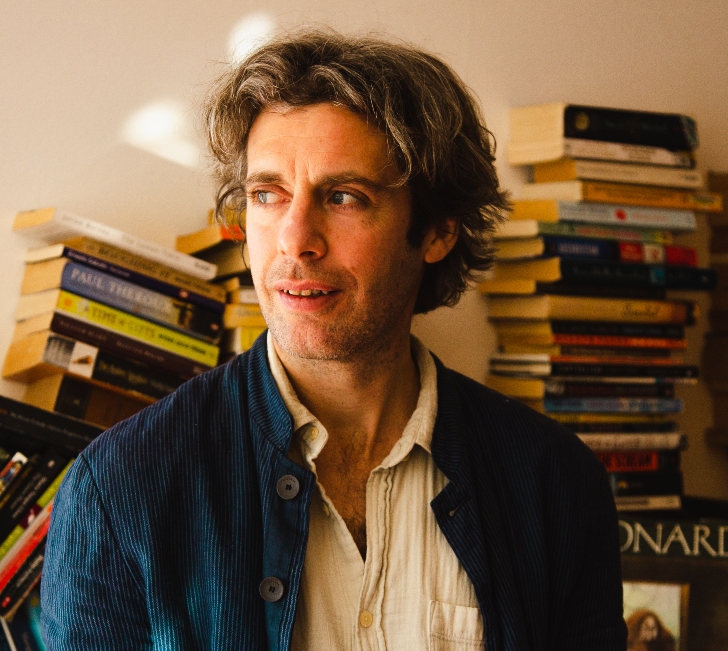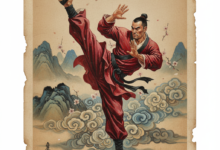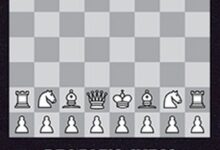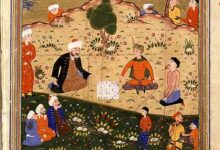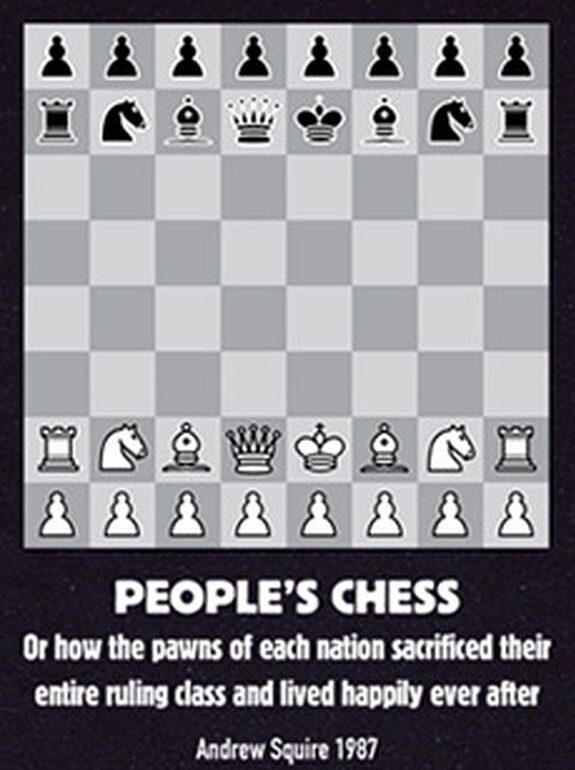
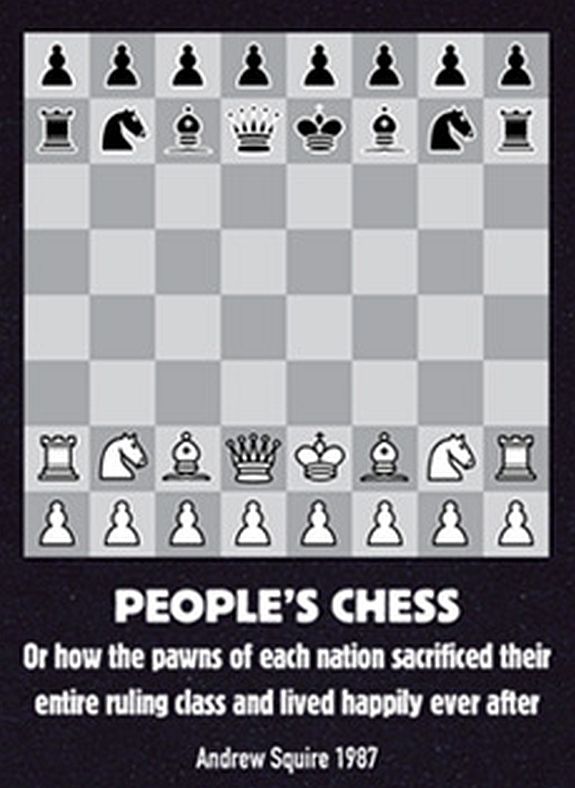
When I was young I was pretty good at chess. I was the captain of the school team and a couple of very kind teachers took me to tournaments and to play for a local club against adults across the county. It was a world almost entirely made up of men and mostly old men at that. Club matches were silent affairs in rooms resembling classrooms, plastic chairs and dominated by the eerie sound of chess clocks ticking away asynchronously. The old men dressed badly, sometimes sucked boiled sweets to put you off and we spoke little other than to ask each other’s names and ranking at the beginning of the match for our little chess notebooks where we recorded our moves for future analysis.
It was a tense and geeky world of stumbling social interaction during the breaks, populated by nervous, stammering personalities whose natural awkwardness was only aggravated by the mental tension of conducting silent battles of life and death across a board with 64 squares and a little clock indicating how long you had until your flag would fall.
Chess players were almost necessarily eccentric. I recall one strong player at our club with greasy hair, dermatitis and a old flannel suit; he worked in the post office during the day where he wouldn’t acknowledge that you’d ever met before but would become loud and flamboyant in the evenings at the club, crying out Schach! when he placed you in check.
Or there was the brilliant QC lawyer who walked into the tuckshop of our school where a tournament was being held and treated the ladies working behind the counter to a booming rendition of Flintstones! We’re the Flintstones! The year before he had been gently escorted out after miaowing like a cat for 20 minutes by the coffee machine.
They’ve measured the blood pressure of grandmaster chess players and discovered that they have the same levels as heavyweight fighters – all the stress and alertness and readiness to kill or be killed while you’re sitting down in silence. Little wonder that chess players blow a fuse from time to time.
When you win you feel like you’ve unlocked a secret of the universe, the ineffable complexity of all existence for one made clear in a series of key moves leaving you feeling like a visionary, a prophet. But when you lose it was intensely personal; like you’d just been fired, you failed, life just broke up with you, a quarrel in which you were without a shadow of doubt, in the wrong.
I remember reading about a player who lost in a tournament and then broke into the hall at night to saw off all the heads of the kings on every board.
It clearly wasn’t cool to be a chess player but there was something wonderful about being in the company of all these people who shared a love for the game of chess. It was like life condensed onto a board – life with rules, definable strategies and yet no way to be sure of winning. We were in the presence of a mystery, an enigma that might never be solved.
A common question that came up in the breaks over tea and cookies was: is chess an art or a science?
We all thought it was an art. One of my teachers liked to tell us that there were more possibilities in the first 3 moves of the game of chess than there were atoms in the universe. Or something like that. It simply wasn’t feasible to reduce it to the tyranny of numbers, the 1s and 0s of binary logic.
I had a chess program on my computer but I could beat it a good part of the time and I never imagined it would become a serious threat to the greats. What chance did a clunky program have against the flair and imagination of the human brain, the most complex structure in the universe?
I wonder if Kasparov once thought so, too.
In 1997, Kasparov lost a match against the IBM Deep Blue chess machine and though Kasparov alleged that IBM had cheated, it was clear that it was just a matter of time. Today the truth is banal – anyone can beat a grandmaster just by glancing at an app on their smartphone.
I would like to say that’s why I gave up chess. Really, of course it was because as I grew older and interested in girls I wanted to expand my social horizons from the world of late evenings with badly-dressed old men slurping tea and making chess quips. I had also started smoking marijuana and my sharpness on the board became permanently blurred.
But to my surprise, technology and AI didn’t kill chess. In a way they invigorated it. With internet chess it became possible to play a game at any time of day or night. Chess engines could help you research and develop openings to improve your game. Youtube chess tutorials explained the principles behind different strategies. It became so much easier to be a geek when you weren’t alone in your bedroom with a bunch of dusty chess books. Now you’re alone in your bedroom with a bunch of other chess geeks online and the horizons are infinite.
And chess has broken through into mainstream culture, the Netflix series The Queen’s Gambit gained a huge following, and a chess scandal even made the news when a minor player performed inexplicably well against Magnus Carlsen, the greatest player of our age. Though that was perhaps due to the salacious suggestion that he had done so with the help of vibrating anal beads that kept him in communication with an accomplice with s smartphone.
So why has chess continued to be popular if the machines can beat us hands down?
I think it’s as simple as this: the world is almost unbearably complex and nuanced. You have no way to know if you’re wrong or right about any given topic, the numbers of points of view take you full circle. There’s more to know than you could ever learn in a thousand lifetimes. You can turn to the easy answers of religion or conspiracy theories, you can numb yourself with drink or drugs or…you can find peace within the confines of a game, one whose depths you will never plumb but which, unlike relationships, family and professional achievement, has clear, defined rules and a definite result each time.
And still, even with a super computer on your side, there’s no perfect way to play. There are just too many possibilities for a chess engine to calculate, at least until we get quantum computing. But what if there was a guaranteed way to win?
So way back in the 1930’s when Alekhine was the world chess champion, having recently defeated the great Capablanca for the world title, he was asked whether any guaranteed winning strategy might ever be discovered for the great enigma of the game of chess. He replied with a story.
He related that some years before he had been in a hotel room getting ready for a tournament the next day and as such he was hoping for an early night. It was stormy outside and the branches pattered against the window and so it took him some time to recognize the tapping on the door as that of a human.
He opened his door wearily and there on the balcony stood a tramp. His hair was unwashed, he was dressed in an old suit with patches and he hadn’t shaved in days.
“I can beat you in 9 moves!” the tramp told him.
Alekhine examined the man, decided that he was delusional but not dangerous and tried to close the door but the tramp placed his foot in the doorway and insisted:
“No, really, I can beat you in 9 moves!”
“Is it money you want?” Alekhine asked with a sigh, “I might have a few coins on my bedside table.”
“Just set up the pieces – you’ll see!”
Finally, Alekhine shrugged in exasperation. “If I play you will you go away?”
The tramp nodded and then shuffled inside to where a table was already set up, Alekhine having been practicing openings earlier in the night. The world champion pulled up a chair for the tramp wearily, hoping the smell he brought with him wouldn’t linger once he was gone. Then Alekhine sat down opposite him, began the game and… lost in 9 moves.
Rubbing the sleep from his eye he scowled at the smirk now hosted by the tramp’s face and demanded a rematch. But once again, the unwelcome visitor defeated him at once. Alekhine was now profoundly disturbed and hurried out of the room and down the hallway where the former champion, Capablanca, was lodged in preparation for a tournament. Capablanca was tired and moody, not feeling too well-disposed towards Alekhine since losing the title but finally agreed to give in to his rival’s caprice and shuffled down the corridor to play the tramp.
Capablanca, too, lost in 9 moves.
“So what did you do?” the other guests at the party asked Alekhine. He shrugged.
“We killed him, of course.”
[Listen to more tales on my podcast Telling Stories w/ Tom Thumb on Spotify, Apple or wherever you get your podcasts]


